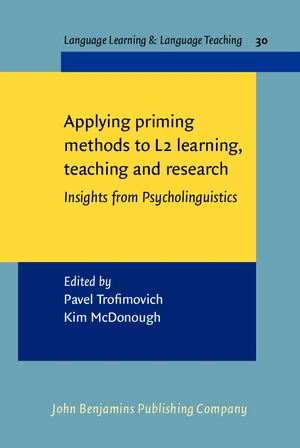The following study uses a bilingual version of the Deese-Roediger-McDermott (DRM) false memory paradigm (Deese 1959; Roediger & McDermott 1995) to investigate conceptual mediation in second language (L2) learners. In this paradigm, participants are exposed to a list of words (e.g. bed, rest, dream, etc.) that are highly associated to a critical lure word that is not presented (e.g. sleep). Later, when asked to recall the words presented, participants will often falsely recall the critical lure that was implicitly generated in memory during encoding. Participants were native English-speaking learners of Spanish (N = 241) with varying proficiency in Spanish. The results suggest that proficiency constrains conceptual mediation. Theoretical and pedagogical implications are discussed.
Price history
Jul 1, 2022
€46.36

